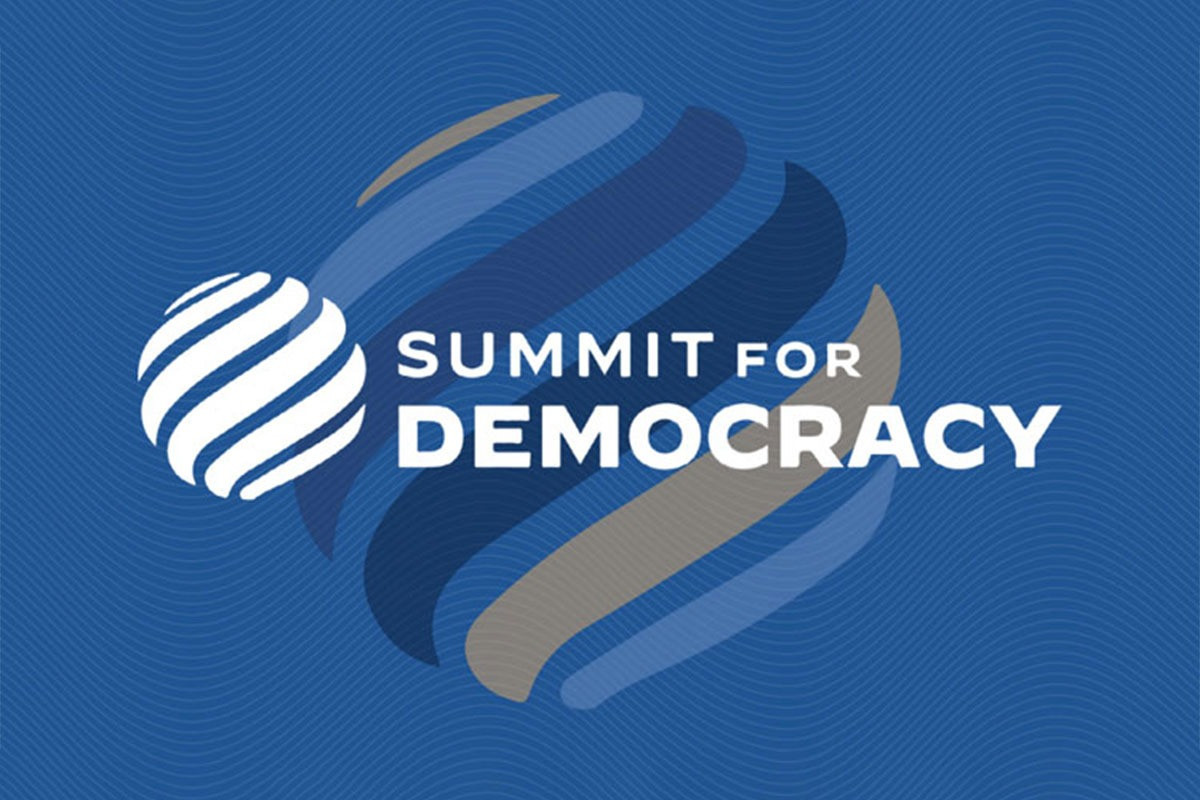This year, on March 29-30, the 2nd Democracy Summit will be held under the organization of the United States.
This year's summit, which will take place on the initiative of the Biden administration, will be hosted by the United States, Costa Rica, the Netherlands, South Korea and Zambia.
The first day of the summit will be held in a virtual format, followed by various meetings in a hybrid format with the participation of government representatives, civil society representatives and the private sector in each host country.
The number of world leaders invited by the Biden administration to the summit has increased to 120 this year.
Among them are eight countries that were not invited to the first summit in December 2021 - Bosnia and Herzegovina, Gambia, Honduras, Côte d'Ivoire, Liechtenstein, Mauritania, Mozambique and Tanzania.
The Democracy Summit was an idea Biden floated during the 2020 election campaign.
In this way, the future President stated that "the United States and its like-minded allies should send a message that democracy is better for the people than authoritarian regimes."
The summit was supposed to give the world a "democracy lesson" and show which countries are democratic.
One year after the presidential election, on December 9-10, 2021, the Biden administration finally organized the first Democracy Summit.
However, a number of organizational biases at that summit raised serious questions about its true purpose.
From the list of participating countries, it was understood that Washington mainly does not want to see independent states at the summit.
Serious human rights violations like Armenia,
The First Democracy Summit actually contributed to further polarization at the global level.
Instead of resolving the tension by intervening in the expected Russia-Ukraine war, the West made a show of muscle by gathering its team around it, exploiting the concept of democracy.
In this regard, the summit served only one of the goals that Biden declared during the election campaign - to show who the United States and its "like-minded allies" are.
Against the backdrop of the Russia-Ukraine war, which began approximately 3 months after the first summit in 2021, the geopolitical situation and the established security architecture in the world have fundamentally changed.
International law has already lost its edge and has become an instrument of oppression in the hands of one group.
Now each of the hegemonic states is trying to strengthen its hand by gathering the satellite states around it.
Under such conditions, the 2nd Democracy Summit has become a kind of platform for the US to show its muscles.
Considering all this, it is possible to say that being invited to the summit or not cannot be considered as an index of democracy of any country.
Especially in the current complex geopolitical situation.
However, not being invited to the summit can be an indicator of how independent the country's policy is.
For example, Hungary, which is a member of NATO and the EU, yet managed to dictate its wishes to the power centers of the West with its independent foreign policy, was not invited to Biden's big summit, and in this way, efforts are being made to isolate and marginalize the state of Budapest.
Turkey, which has held democratic elections for decades, considers itself an ally of the United States, and assumed a globally significant role in the Ukrainian war, is among those not invited to the summit.
Probably, in this way, Washington is also trying to influence the outcome of the elections to be held in Turkey in May.
The non-invitation of Azerbaijan, which strongly supports the US's fight against international terrorism, participates in its operations in the Middle East and Afghanistan with a peacekeeping mission, and is called a reliable partner by the West in the current energy crisis, is another example of the country's independent foreign policy.
During the years of independence, the Azerbaijani authorities skillfully used the favorable geostrategic position of the country and managed to stay out of global and regional conflicts, clashes, and tensions, and applied their independent policy without joining any grouping.
This non-alignment position played an undeniable role in the transformation of Azerbaijan into one of the strongest states in the region.
Therefore, whether or not a country participates in this summit, which is not based on democratic principles during the invitation, should not be considered as an index of its democracy.
